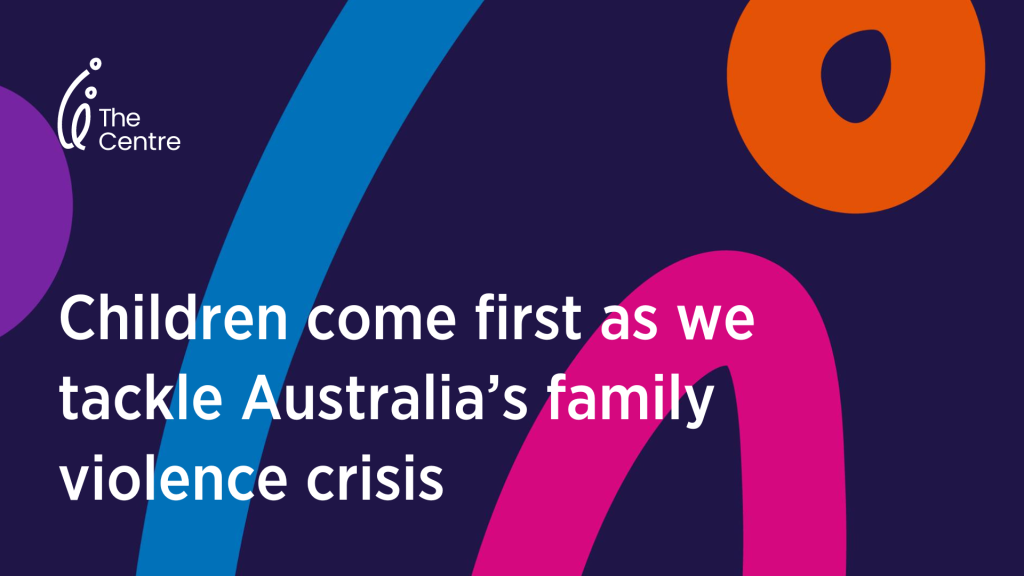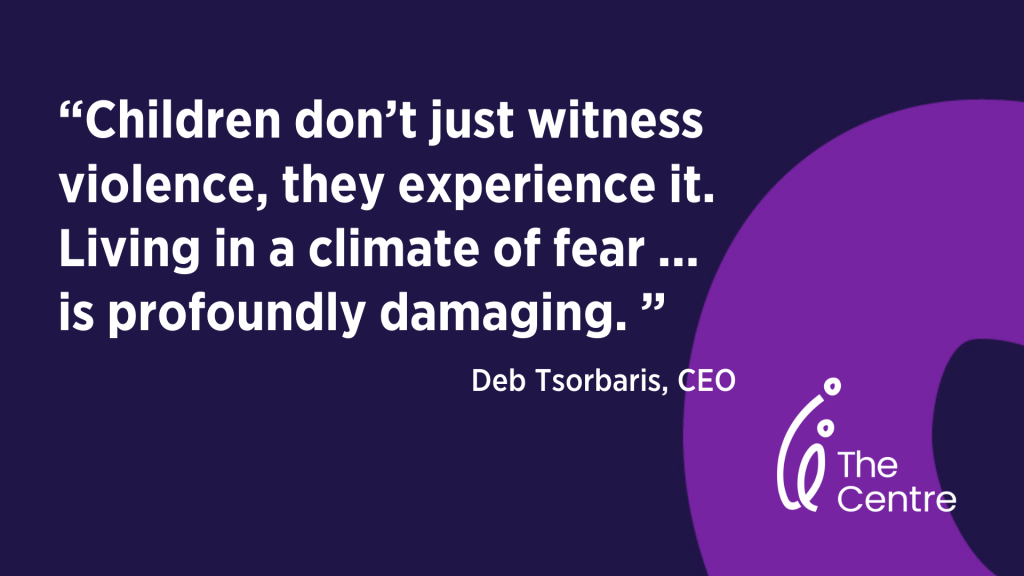“We know that children don’t just witness violence, they experience it. Living in a climate of fear and experiencing the aftermath of violence is profoundly damaging,” says the Centre’s CEO Deb Tsorbaris on LinkedIn.
Despite the number of children and young people exposed to family violence and the evidence highlighting the short- and long-term impacts of family violence on children and young people, children have been seen and continue to be seen as an ‘add on’. Our family violence system often treats children and young people as extensions of their parents, rather than as victims in their own right.
A dogged, unrelenting focus on the rights and needs of children and young people is the only way to keep them safe. Everything we do in responding to and preventing Family Violence must prioritise the welfare, rights and voices of children first.
How can we make sure that when we talk about family violence, that children don’t get lost? As we move away from the terminology of “domestic violence” toward “family violence”, it’s easy to wrap child maltreatment up in a family violence blanket. I am concerned that we lose sight of the particular needs and voices of children and young people if we don’t make a concerted effort to define them separately as victim survivors in their own right.
The Australian Child Maltreatment Study (ACMS) was a call to action for specialist service responses for children who aren’t passive witnesses of family violence but experience it directly or indirectly in the moment and then must live with the effects to their mental health and wellbeing for life.
Victoria’s Family Violence Minister Vicki Ward launched Strong Foundations last year, and one of its five strategic priorities – I think the most important priority – is a focus on children and young people. It commits to engage children and young people to create generational change and forge and expand existing family violence services designed with the needs of children in mind. This is an exciting vision, which is now open for feedback.
We have the data. We have evidence on what works. We have a blueprint for action. These are things policymakers, and the family violence sector has never had before.
So, it’s time to do more integrated work with children and young people – overcoming sector barriers and differences.
It’s time to focus our energy on supporting children and young people in their recovery and ensuring they receive access to specialist services in their time of need – which may be lifelong.
It’s time to consult with children and young people with experience of family violence, ensuring they’re sitting at policy, service development, and decision-making tables.
It’s time to act to keep kids safe.
Read the full article on LinkedIn here.







